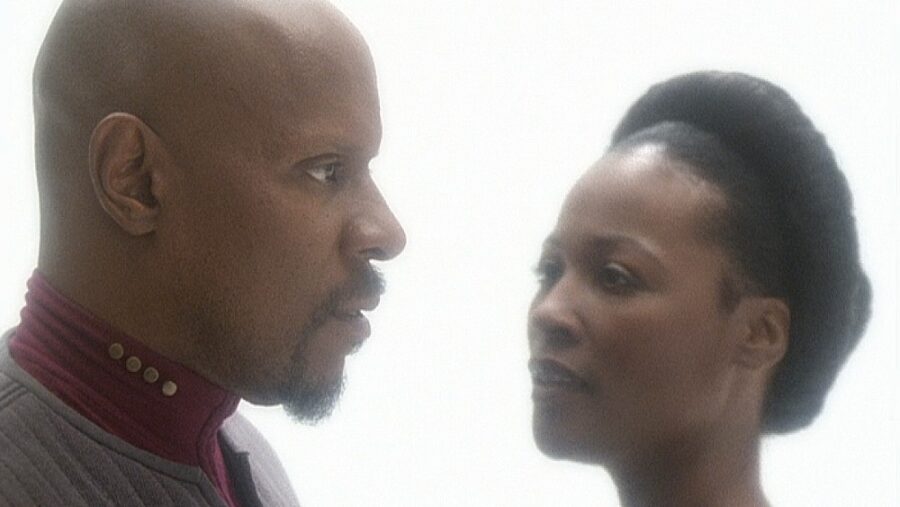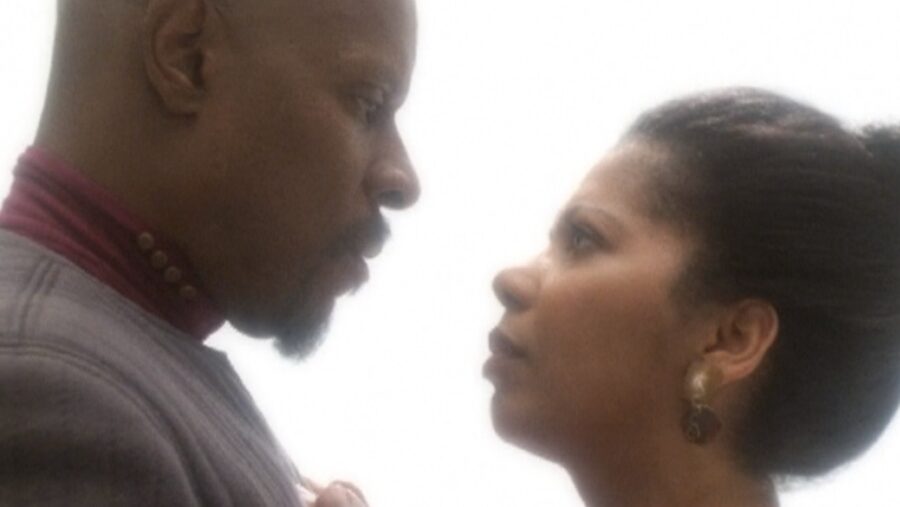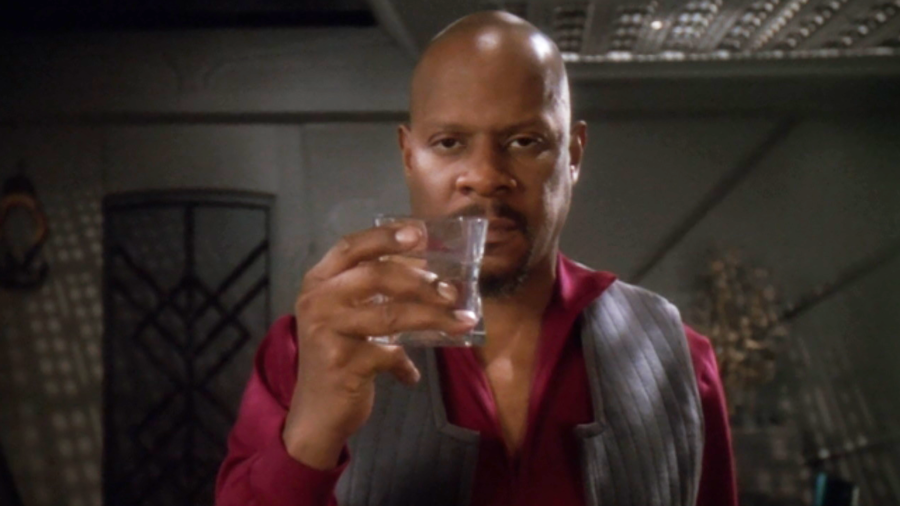The Star Trek Captain That Saved The Series Finale From Failing By Making A Race Argument

Star Trek: Deep Space Nine remains the best Star Trek show, and unlike fellow shows Voyager and Enterprise, its final episode truly ended with a crowdpleasing bang. In addition to seeing Starfleet finally beat the Dominion, we got to see Captain Benjamin Sisko kill a possessed Gul Dukat before joining the god-like Prophets in their Celestial Temple. These wormhole aliens are non-linear, and Sisko tells his pregnant wife that he will return “maybe in a year, maybe yesterday,” but that almost never happened: in fact, Sisko actor Avery Brooks had to convince producers to change a conclusion that would have left his character trapped in the wormhole forever.
The main reason Star Trek: Deep Space Nine’s writers and producers wanted to end Sisko’s story like this is to pay off a warning he previously received from his biological mother, who is also a Prophet. The captain was understandably keen to marry Kasidy Yates, and he was warned by the Prophets that if he did so, he “would know nothing but sorrow.” Sisko ignores the warning, marries Yates, and the two of them soon conceive a child together.

Therefore, the original finale of Star Trek: Deep Space Nine was going to involve Sisko being unable to leave the wormhole, fulfilling his mother’s prophecy because he would be unable to spend any significant time with either his wife or their child once the kid is born. This would have added a lot of sadness to the finale and likely recontextualized the name of the last episode: “What You Leave Behind.” However, like his Sisko character, it didn’t take long for Avery Brooks to pull rank and change this planned Deep Space Nine conclusion.
Within two days of shooting a scene where Sisko definitively tells Yates he won’t be back, Brooks contacted showrunner Ira Behr to voice his displeasure. Brooks argued that it sent a very bad message to portray a Black man leaving his pregnant wife behind to raise their child on his own. Behr agreed with Brooks, and they reshot some of the scenes with Sisko emphatically telling her, “I will be back.”

One reason Star Trek: Deep Space Nine fans like this ending is because it leaves room for Sisko to come back in some exciting ways. While this sadly hasn’t happened onscreen (yet), the non-canonical Star Trek comics from IDW have brought Sisko back to help fight a mysterious force killing other gods. The comics make for an excellent read, and they demonstrate what the return of Sisko could mean for live-action Star Trek if done right.
I’m ultimately very glad that Avery Brooks changed this major scene of the Star Trek: Deep Space Nine finale, both because it no longer sends a negative message and because it opens up the door for Sisko’s triumphant return. In the meantime, we get to bask in the irony that Sisko began the series feeling very uncomfortable that he was the Bajorans’ space Jesus, and he eventually became one of their gods by the end of Star Trek’s greatest show.

The doubting Thomas has become himself divine, creating one of the greatest character arcs in all of Star Trek history.












